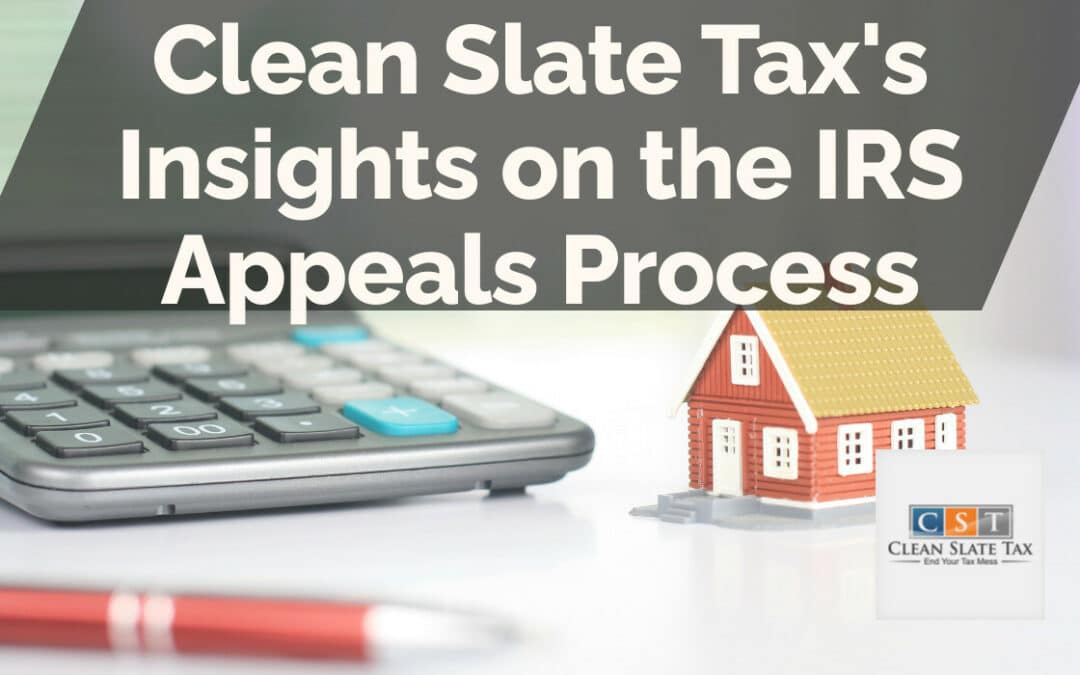Understanding the intricacies of the IRS appeals process can be a daunting task. This article aims to shed some light on this important topic with insights from Clean Slate Tax, a renowned organization in the tax resolution industry.
What is the IRS Appeals Process?
The IRS Appeals process is a mechanism in place for taxpayers who disagree with the results of an examination of their tax returns or other adjustments to their tax liability. As part of the IRS’s commitment to taxpayers’ rights, the Appeals process aims to resolve tax disputes fairly and impartially.
Why Might You Need to File an Appeal?
The top reasons taxpayers might need to file an appeal are generally if they believe the IRS has misunderstood the tax law, made a mistake in interpreting the facts, or was incorrect in calculating their tax liability.
The IRS Appeals Process – A Step by Step Guide
-
Receipt of an IRS Notice: The process generally begins when a taxpayer receives a notice from the IRS asserting an adjustment to their tax liability.
-
Review of the IRS Notice: The taxpayer or their representative should carefully review the notice to understand precisely why the IRS is proposing to adjust the tax liability.
-
Decision to Appeal: If the taxpayer does not agree with the notice, they may decide to appeal.
-
Filing an Appeal: The taxpayer must then file their appeal in writing, demonstrating why they disagree with the IRS’s determination.
-
Meeting with Appeals Officer: An independent Appeals Officer reviews the case and meets with the taxpayer to discuss the disagreement.
-
Reaching a Resolution: The Appeals Officer makes a determination which can either uphold the original IRS decision or propose adjustments to it.
Common FAQs about the IRS Appeals Process
How Long Does the IRS Appeals Process Take?
The time it takes can vary significantly, based on case complexity and other factors. However, on average, it can take anywhere from a few weeks to more than a year.
Can You Go to Court if You Disagree with the Appeals Officer?
If you are not satisfied with the resolution proposed by the Appeals Officer, you have the right to take your case to Tax Court or Federal District court.
Do You Need a Tax Professional to Handle an IRS Appeal?
While it is not mandatory to have a tax professional, hiring one can help ensure that your case is presented in the best possible light and that you understand the complex laws and procedures involved.
Can You Appeal If You Cannot Pay?
Yes, if you cannot pay the proposed tax liability, you can appeal for a compromise or an installment agreement to make payments over time.
The Clean Slate Tax Advantage
With extensive experience in navigating IRS processes, Clean Slate Tax has insight and expertise to handle IRS appeals. Their dedicated team of tax professionals works on behalf of taxpayers, aiming to reduce their liability and negotiate effective payment plans.





